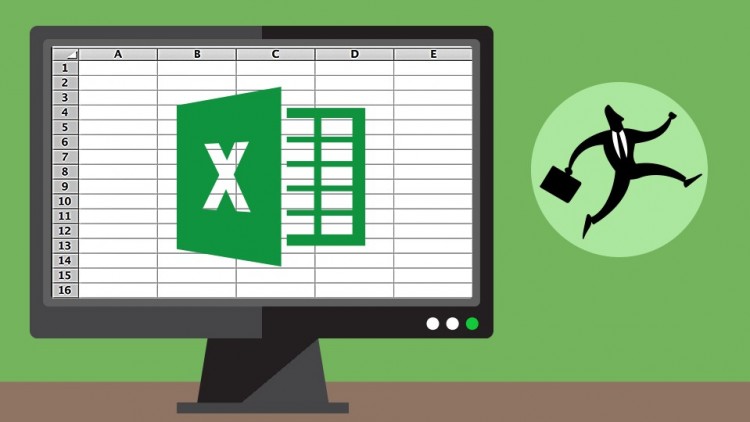Reports of its death have been greatly exaggerated
We’ve all heard the famous quip from Mark Twain that news of his death was greatly exaggerated—even an obituary appeared in the U.S. press that the author and humorist had died. Untrue it was, as evidenced by the response from the deceased himself. And although Excel has no way to verbally refute it, reports of its demise are also appearing in media and online commentaries, from a variety of sources. “Too old” observers say. “Obsolete and unfriendly” some contend. “Time for innovation and a fresh face” others assert. Still, an eye-opening statistic from a recent survey showed that nearly 90% of the accountants queried found Excel “is a critical tool they could not do without”.
The fact is, many have tried to portend and then confirm the death of Excel, and much like the aforementioned quote from Twain, such an event has been greatly overrated. Consider this: though many have attempted to replace what can only be considered one of the super applications of the past few decades, none of today’s technology leaders have been able to create and popularize an alternative that unseats Excel’s ubiquitous—and very much lively—leadership role. And, while innovation needs to be considered and valued, recognized standards and proven capabilities can, in fact, rule the day. They can clearly override efforts undertaken merely for the sake of reinvention, without a particularly practical outcome.
Let’s take a look at Excel as it hits its early middle age, and consider the reality of its viable future in the world of accounting. After all, it’s here where tried and true processes and accurate outcomes are the most critical.
The good news about Excel:
Delivers simplicity and scale- Much of the beauty of Excel lies in its simplicity and ability to scale. With a seemingly infinite number of rows and columns for inputting data of all kinds, it calibrates effectively to accommodate growing accounting departments and the huge amounts financial data they need to corral, evaluate and reconcile. It organizes, massages and manipulates that data into charts and tables for presentation purposes and makes huge amounts of data (i.e. from ERP systems) decipherable and ready for analysis, facilitating better business decisions.
Is tried, true and future proof- Excel overtook Lotus 1-2-3 years ago and has never been seriously challenged by any other competitor, becoming the de facto financial application for organizations of all types and sizes. It’s backed with confidence by IT giant Microsoft, and gets continual enhancements, ongoing support and a product roadmap that won’t see end-of-life any time in the near future. Any investment in Excel certainly has “legs.”
Speaks a common language- Excel maintains its familiarity across the entire business and financial community, making it invaluable for cross-communication between executives, accountants, outside auditors, consultants and tax professionals. It’s truly the common denominator for the breadth of analytical and fiscal conversations and decisions.
Solidifies professional progress- Those who are skilled in Excel, often to a Ninja-class level, also prove to be valuable assets to their employers, simultaneously improving their individual competencies while solidifying their organization’s validation of them as essential team members.
Some less-great news about Excel:
Prone to human error- As with any application that depends on manual input of data, Excel can be pre-disposed to entry errors and subsequent inaccurate results. Data uploads from other applications can help minimize issues, but there are few work-arounds for erroneous entries and calculations. This becomes even more acute as formulas become increasingly sophisticated and the volume of data input expands.
Lacks collaboration capabilities- Though not originally designed to be a collaborative tool, this deficiency is probably Excel’s biggest shortcoming for today’s accounting department. As departmental teams grow, the ability to work together, have visibility into one’s own tasks as well as those of coworkers, and track progress to completion–especially for month end close processes–is essential. Excel requires a central source for ongoing maintenance, demanding that individual updates be funneled to a primary point of contact, creating process bottlenecks and redundant efforts.
Needs more transparency- Change tracking over time is an important function for accounting teams striving both to stay in sync with one another, and to retain control of myriad activities that need to be documented, or at some point, retraced. Excel lacks safeguards such as worksheet lockdown, and an audit trail of change tracking that could assist in any needed remediation or confirmation efforts.
The reality: Excel is here to stay:
Stats prove the love for Excel by accountants- An increasing number of financial and accounting software applications attempt to replace Excel, and provide “Excel Lite” capabilities, are frequently built directly into newer software solutions. There’s just one big problem: the majority of accountants still prefer Excel. This holds true in light of the validations of its benefits, and in spite of the shortcomings, outlined earlier.
Statistics (probably in an Excel spreadsheet) confirm the unanimous decision. A recent 2017 survey of more than 250 accountants, completed by Dimensional Research, found that 87% of them identified Excel as a critical tool they simply could not function without (See Figure 1). Not surprisingly, another 75% do expect seamless integration with other software applications, a trend that continues to extol the best of multiple worlds of complementary financial applications (See Figure 2). As the popularity of leading-edge solutions, such as close management software, blend Excel capabilities with ERP data and their associated reconciliation tasks, this will define the future of the way accounting professionals maintain their preferred tools, while simultaneously integrating them to become more efficient and accurate.
That’s the best news possible for accountants and Excel lovers everywhere.
—
Michael Whitmire, CPA, is co-founder and chief executive officer at Los Angeles-based FloQast, a developer of close management software that integrates with Excel. Created by and for accountants, FloQast helps organizations close faster and more accurately. FloQast can be reached at info@floqast.com.
Thanks for reading CPA Practice Advisor!
Subscribe Already registered? Log In
Need more information? Read the FAQs




